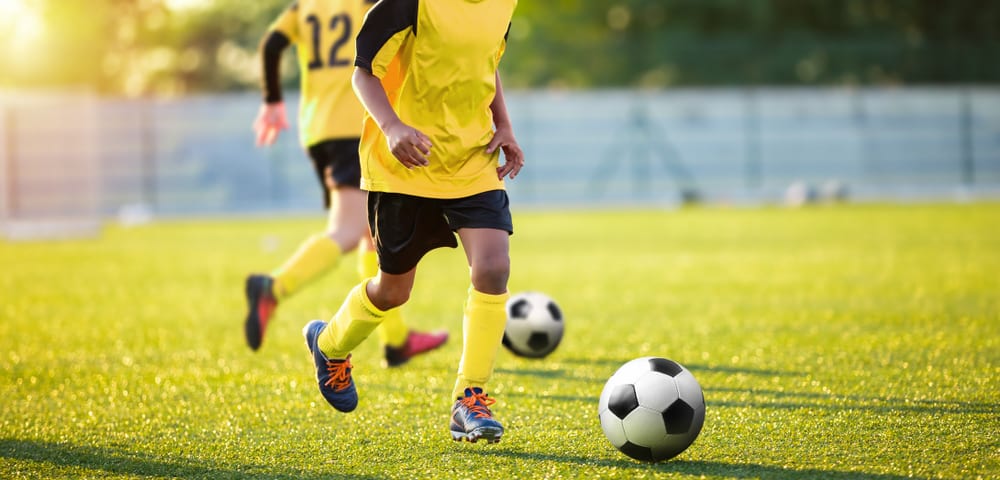With last month being Brain Injury Awareness Month and the topic of head trauma being at the forefront of research studies, movie topics and newspaper headlines, the word “concussion” appears to be everywhere. As a healthcare practitioner, it is important to keep up to date with new research findings surrounding this topic and implement them into clinical practice. Recent studies have examined the relationship between the benefits of meditation on the recovery from head trauma and the results have been extremely promising. Since a concussion can lead to symptoms like anxiety and mental confusion, it is important to know the tools that can help an athlete manage these negative emotions
What exactly is “mindfulness meditation?”
This is the first question that we often hear after recommending that an athlete begin meditating to help with recovery from a concussion. The term almost intimidates people and the common perception of sitting in a quiet room with their legs crossed turns them off of the idea before they even begin. Mindfulness meditation is simply the practice of being completely engaged in whatever may be happening in the moment. Sounds simple enough, right? The art of focusing on the present can be extremely difficult for many people when they first start out. Once you are able to mentally focus on the moment, including your feelings, sensations and emotions at that time, you will start to see the positive impact that this simple act can have on your quality of life.

What are the benefits of meditating?
Those who are able to “live in the moment” and practice meditation routinely notice the following positive changes to their every day life.
✔︎ Reduced Stress, Anxiety and Worry
✔︎ Increased Relaxation
✔︎ Mental Clarity and Calmness
✔︎ Ability to Enjoy the Present Moment
✔︎ Increased Ability to Think Positively and Problem Solve
✔︎ Elevated Quality of Life
Overtime, those individuals who have found a way to reduce their stress and improve their mental clarity become happier, calmer and more content with their lives. This shift can dramatically help an athlete who is suffering from anxiety and depression that was caused from a traumatic brain injury. There has always been an emphasis on the physical symptoms that athletes may endure after a concussion, but now we are starting to pay more attention to the emotional changes as well. If we can teach our athletes about the importance of meditation and start incorporating meditation into the treatment of all head injuries, we can start helping athletes cope both mentally and physically during their recovery.

How do I meditate?
First of all, meditation does not involve completely shutting off your brain and stopping all of your thoughts. The key with meditation is to allow your thoughts to come into your mind without judgment; try to not let yourself get affected or emotionally phased by your thoughts. The easiest way to not get too focused on your thoughts is to shift your focus to your breathing; when a thought comes into your mind, mentally let it go and redirect your attention to your breath.
Step-By-Step Meditation:
- Find a quiet and comfortable place and position (Eventually you will be able to meditate anywhere, but for the beginning, start in a place that has minimal distractions.)
- Focus on the present moment – notice all sounds, feelings and emotions. (Try to put aside thoughts of the past and future).
- Focus on your breathing – become aware of the feeling of air moving in and out of your body, feel your belly rise and fall, breathe in through your nose and out through your mouth.
- Notice your thoughts (anxiety, fear, happiness, worry, hope) – Allow thoughts to flow in and out of your mind. Don’t hold onto thoughts – let them pass by remaining calm and continuing to breathe. Don’t get carried away with your thoughts.
- Practice makes perfect – Don’t get discouraged if this takes you a while to do successfully, it takes a lot of practice! Begin practicing for a few minutes at a time and then gradually build up to longer periods.

Take Away Message – Meditation has been shown to help reduce anxiety and depression, which are also common symptoms of a concussion. Therefore, meditation should be used as a treatment tool for an athlete recovering from a head injury.
About Author
 Dr. Caitlin McAlpine
Dr. Caitlin McAlpine
Dr. Caitlin McAlpine is a graduate from the Canadian Memorial Chiropractic College. While completing her four-year doctorate program, she furthered her studies at McMaster University and is also a certified Contemporary Medical Acupuncture provider. Prior to her CMCC education, Dr. McAlpine attended the University of Western Ontario and graduated in 2009 with an honours specialization degree in Kinesiology.


 Dr. Caitlin McAlpine
Dr. Caitlin McAlpine

